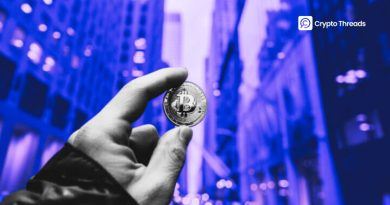What Are Cryptocurrency Market Makers?
Market makers enhance crypto trading efficiency Source: B2Broker
In the complex world of cryptocurrency, there are key players who play crucial roles that many traders might not fully understand – these are market makers. Let’s explore their essential role and how they operate in the crypto markets.
The Role of Market Makers in Liquidity Provision
To understand market makers, we first need to grasp the concept of “liquidity” in trading. Liquidity is like having enough water in a pond – if the pond has plenty of water, you can swim easily without obstacles. Similarly, a market with high liquidity means there are always enough buyers and sellers, allowing transactions to be executed quickly and efficiently.
Liquidity enables smooth crypto trading Source: Master The Crypto
Market makers act as “guardians” of this liquidity. They continuously place buy orders (bids) and sell orders (asks) for different trading pairs. When a trader wants to buy or sell but can’t find a suitable counterpart, market makers “step in” to act as the buyer or seller to complete the transaction.
What’s interesting is that market makers are typically large financial institutions with sufficient capital to handle large trading volumes. However, sometimes individual traders can also take on this role, although the requirements are very stringent and only specialized professional institutions can usually meet them.
An important point to note is that market makers must be independent organizations, separate from the exchange to avoid conflicts of interest. This is like having a referee in a football match who cannot simultaneously be a player on any team.
Benefits That Market Makers Bring to Cryptocurrency Exchanges
Market makers bring several important benefits to cryptocurrency exchanges, creating a healthy and attractive trading ecosystem.
First, they enhance the overall trading efficiency of the exchange. By continuously providing bid and ask prices, they ensure order books always have sufficient liquidity. This is like having a restaurant that always has food prepared – customers don’t have to wait long to be served.
Order books display market liquidity Source: Babypips.com
Second, market makers help maintain price stability and continuity. They keep the gap between bid and ask prices (bid-ask spread) at reasonable levels, which is a sign of good liquidity and an active trading environment. When spreads are narrow, traders can trust that they’re trading in a fair market that’s difficult to manipulate.
Finally, market makers are particularly valuable for assets with low liquidity. They help lesser-known coins have opportunities to be traded more frequently, thereby increasing their visibility and attractiveness to investors. This is like having a celebrity endorse a new product – that product will get more attention.
How Do Market Makers Make Money?
The profit mechanism of market makers is quite interesting and different from traditional trading methods. Instead of “buying low, selling high” like regular traders, they profit from price spreads.
How market makers generate profits Source: Shift Markets
Imagine market makers like currency exchangers. When you want to exchange USD for EUR, the currency exchanger will buy USD from you at a price slightly lower than the market price, and sell EUR to you at a price slightly higher. This difference is their profit.
Specifically, when traders want to sell an asset, they receive the bid price, which is lower than the market price. Conversely, when they want to buy, they must pay the ask price, which is higher than the market price. The difference between the price traders receive and the actual market price is the market maker’s profit.
Additionally, market makers also receive service fees from exchanges. This is an additional source of income, similar to rent that a store must pay to a shopping center.
What’s interesting is that the level of competition in the market affects market makers’ profits. When there are many competing market makers, spreads will narrow, benefiting traders but reducing market makers’ profits. However, if spreads are too wide, they may discourage traders from trading, thereby reducing volume and ultimately affecting profits as well.
Thus, market makers play the role of important “bridges” in the cryptocurrency trading ecosystem, helping create a stable, efficient, and attractive trading environment for all participants.



